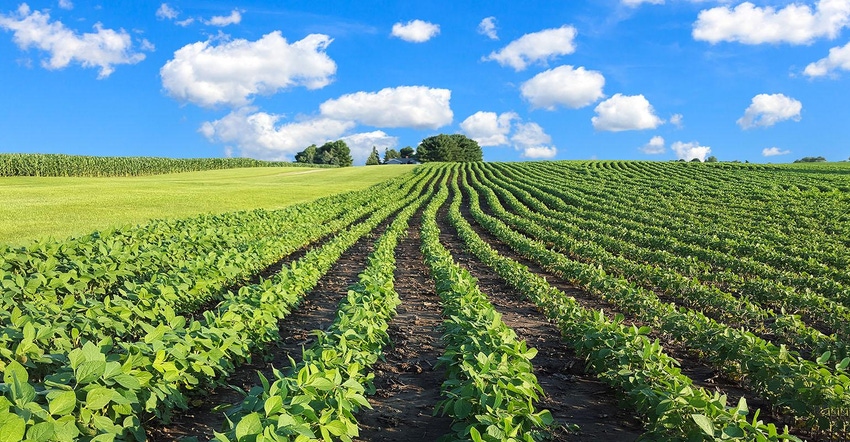
The other day, the latest report from USDA - NASS on rising farmland values was published for 2022. Wow! It has taken me two weeks to digest the data.
Of course, many of you reading this column who rent or lease farm ground will likely be subject to rental rate increases from your landlord because of the inflated values. This will be a profit and cash flow tight rope to traverse as uncertainty surrounding input costs, prices, and interest rates are added to the equation. A slip up in the rental negotiations this fall could result in large losses that even the best managers may have difficulty overcoming.
What has caused the inflated land values?
The inflated land values are a double-edged sword. With land comprising over 80 percent of farm balance sheets, this increase of unearned net worth can result in heightened emotions concerning one's net worth. The dividends or the profits are becoming very disconnected from reasonable rates of return. What is driving land value increases year-over-year by as much as 25 percent in Kansas, 21 percent in Iowa and Nebraska, and the teens in many of the farm belt states?
“I am the government, and I am here to help you!” There is no doubt that generous one-time payments from the government during the pandemic have been capitalized into farmland purchases. Recently, a producer on a conference call had just received a $1 million check from the government. He stated that this was his “Vegas money” that had zero cost of production and was used in acquiring farms.
Next, the Federal Reserve’s accommodative monetary actions, including maintaining low and stable interest rates, have been a factor for landlords increasing their holdings. This, along with land being used as an inflation hedge, has no doubt lit a fire under farm real estate values.
Another factor affecting land values is demographics. The baby boomer farmer and rancher that survived the 1980s has strong equity and cash on the balance sheet. These older producers and other growth-oriented farmers who are good to excellent managers are in the position to acquire landholdings, which is increasing consolidation. Some producers whose transition and estate plans attempt to treat all their heirs equally are creating the “Grim Reaper” mentality to the heir wishing to remain on the farm. The huge unearned net worth often makes it impossible to buy out siblings, resulting in split parcels quickly being gobbled up by other producers and land investors.
Another subtle factor is that land is an ideal investment for boomers when compared to cryptocurrencies, the stock market, and bonds. The flow of wealth from aging farmers, investors, and big names who earn billions of dollars outside the agriculture industry is unparalleled and is increasing land values.
It appears that Dorothy, the Tin Man, and the Cowardly Lion have found the rainbow on the yellow brick road of wealth and investments in Kansas and many of the farm belt states. The question becomes, who will be the Wicked Witch of the West and what will be in the brew? A drop in land values will most likely be caused by a confluence of events such as higher interest rates, margin compression, negative margins, institutional shifts such as government or regulatory policy, and global competition.
Inflated land values, unearned net worth, and rent negotiations will be hot topics on social media, in coffee shops, at conferences, and in the general media this fall. Stay tuned!
Source: David Kohl, who is solely responsible for the information provided and is wholly owned by the source. Informa Business Media and all its subsidiaries are not responsible for any of the content contained in this information asset.
About the Author(s)
You May Also Like






